Exploring Renewable Energy: Types & Impact on Our Future. Discover how renewables shape India's energy landscape
The conversation around energy is changing, especially in India. We hear more and more about
renewable energy, but what does it really mean? Renewable energy comes from sources that naturally replenish themselves, like sunlight, wind, water, and heat from the Earth.
Unlike fossil fuels like coal and oil, which are finite and contribute to pollution, renewable energy offers a cleaner and more sustainable path forward. Embracing these resources is not just an environmental decision, but also a crucial step towards energy security and economic growth for India.
Let's dive into the different types of renewable energy and how they are shaping our future.
Solar energy in India: abundant resource, powering homes, reducing dependency on conventional options
Solar energy, without a doubt, shines as one of the most promising resources. India, blessed with abundant sunshine, is perfectly positioned to harness its power. Solar power plants convert sunlight directly into electricity using photovoltaic (PV) cells.
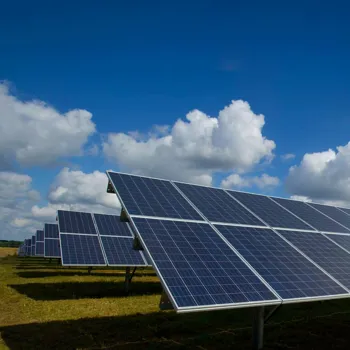
These cells, often seen on rooftops and in large solar farms, capture sunlight and create an electrical current. Solar energy is not only used for generating electricity but also for heating water, powering homes, and even fuelling transportation through solar-powered vehicles.
The falling prices of solar panels and government initiatives are making solar energy increasingly accessible and affordable for homes and businesses across India.
The government’s push for solar parks and rooftop solar installations shows the commitment to maximize the use of sun’s power and to reduce dependency on the conventional options.
Wind energy's key role in India's renewable sector growth
Wind energy, another major player in the renewable energy space, relies on the force of wind to generate electricity.
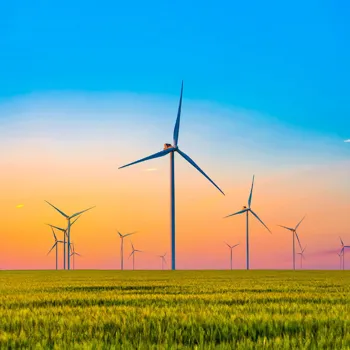
Wind turbines, those tall structures with rotating blades, capture the kinetic energy of the wind and convert it into mechanical energy, which in turn drives a generator to produce electricity. Coastal regions and areas with consistent winds make for ideal locations for wind farms.
India has a considerable wind energy potential, especially in states like Tamil Nadu, Gujarat, and Maharashtra. Wind energy offers a clean and emission-free way to generate electricity, playing a significant role in reducing carbon emissions.
Government policies, like tax benefits and feed-in tariffs, are incentivizing wind energy development and encouraging private sector investment in the sector. Over time, wind energy has proved to be an asset for Indian Energy sector.
Hydropower: renewable, reliable energy source with environmental concerns
Hydropower, one of the oldest forms of renewable energy, utilizes the power of moving water to generate electricity. Hydroelectric power plants capture the energy of flowing water, typically from rivers and dams, to turn turbines that drive generators.
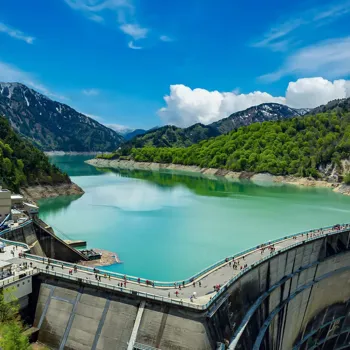
Hydropower is a reliable source of electricity and can provide baseload power, meaning it can continuously supply electricity even when other renewable sources are intermittent. India has a long history of hydropower development, with many large and small hydroelectric projects across the country.
Hydropower is a clean and renewable source of energy, but it is important to consider the environmental impacts of dam construction, such as habitat disruption and displacement of communities.
Careful planning and sustainable practices are essential to ensure that hydropower development is environmentally responsible and socially beneficial. The sector also requires a focus on minimising displacement and providing compensation.
Biomass energy in India: sustainable, diverse, and growing
Biomass energy involves converting organic matter, such as agricultural residues, forestry waste, and animal dung, into energy. Biomass can be burned directly to produce heat, or it can be converted into biofuels like ethanol and biodiesel for use in transportation.
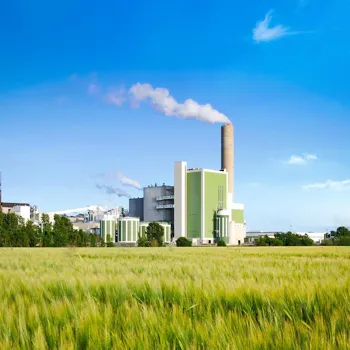
Biogas, produced from the anaerobic digestion of organic matter, can be used to generate electricity or as a fuel for cooking and heating. India has a vast potential for biomass energy, given its large agricultural base and abundant biomass resources.
Biomass energy offers a sustainable way to manage waste, reduce reliance on fossil fuels, and create economic opportunities in rural areas.
The government is promoting biomass energy through various policies and programs, including subsidies for biogas plants and incentives for biofuel production, allowing India to become more and more sufficient in its carbon consumption.
Geothermal energy: clean, reliable power source with growth potential
Geothermal energy harnesses the Earth's internal heat to generate electricity or for direct heating applications. Geothermal power plants tap into underground reservoirs of hot water and steam to drive turbines that produce electricity.
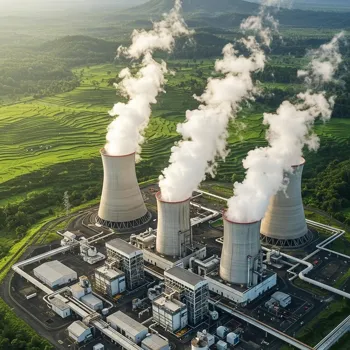
Geothermal energy is a clean and reliable source of energy, as it is available 24 hours a day, 7 days a week, regardless of weather conditions. India has some geothermal potential, particularly in the Himalayan region, but geothermal development is still in its early stages.
Geothermal energy offers a promising alternative to fossil fuels, but it requires careful exploration and development to ensure the sustainability of geothermal resources. More research would be an added advantage to grow in this sector.
Renewable energy in India: benefits, job creation, energy security, and sustainable future
Renewable energy sources offer numerous benefits for India's future. These sources reduce air pollution and greenhouse gas emissions, helping to improve air quality and combat climate change.
Renewable energy reduces dependence on imported fossil fuels, enhancing energy security and saving precious foreign exchange reserves. Renewable energy projects create new jobs and economic opportunities, particularly in rural areas.
Investing in renewable energy is also investing in a healthier and more sustainable future for generations to come.
As technology advances and costs continue to decline, renewable energy is poised to play an even greater role in India's energy mix, powering homes, businesses, and industries with clean, sustainable power.












